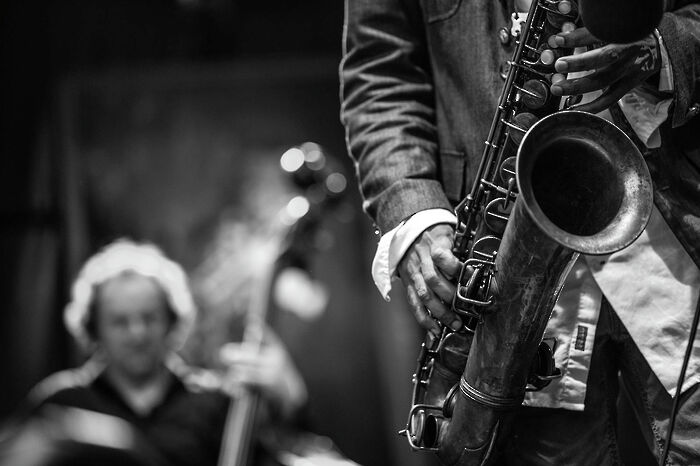The women of Zohra don’t dream, they do it
William Poulos tells the inspiring story of Zohra, Afghanistan’s first all-female orchestra.

Last month we celebrated International Women’s Day, and to mark the event Radio 3 played nothing but music composed by women. It was great to hear, and the BBC has supplementary material on its website – such as interviews and compilations – which provides many encouraging examples of women who are free to pursue a musical livelihood in Britain.
But they are not free to do so in Afghanistan. A country with a rich musical heritage, Afghanistan was the site of musical censorship throughout the last quarter of the twentieth century. After invading in 1979, the Soviets had a strong grip on music through their Ministry for Information and Culture. After the Taliban took Kabul in 1996, they banned all music except for the singing of certain types of religious poetry and unaccompanied chants which praised their regime. They banned all musical instruments and published some edicts against music, one of which read: “[i]n shops, hotels, vehicles and rickshaws cassettes and music are prohibited. This matter should be monitored within five days. If any music cassette found in a shop, the shopkeeper should be imprisoned and the shop locked. If five people guarantee the shop should be opened the criminal released later. If cassette found in the vehicle, the vehicle and the driver will be imprisoned. If five people guarantee the vehicle will be released and the criminal released later.”
While the Taliban burned cassettes and imprisoned some musicians, other musicians fled, including the musicologist Ahmad Sarmast, who found asylum in Australia.
"The women of Zohra don’t dream; they do it, and their exceptional commitment and bravery ought to be more widely know"
After the fall of the Taliban in 2001, music in Afghanistan increased in volume and presence, and, from Australia, Sarmast negotiated with the Afghan Government in order to re-establish musical education there (Afghanistan). In 2010 he established the Afghanistan National Institute of Music, which (importantly) teaches Afghan and Western music and (even more importantly) teaches boys and girls. Yet the struggle was not over: in 2014 a suicide bomber attacked a concert at which Sarmast’s students were performing, killing one man and seriously injuring many others, including Sarmast himself. After the attack the Taliban released a statement naming Sarmast and accusing him of corrupting the youth. After surgery in Australia, Sarmast returned to Afghanistan and continued work at the National Institute of Music, which in 2015 gave the world Zohra, Afghanistan’s first all-female orchestra.
Negin Khpalwak, Afghanistan’s first female conductor, conducted Zohra’s first concert. She comes from the Kunar province in northeast Afghanistan, a favoured spot for Taliban insurgency, where girls don’t go to school and many aren’t allowed to learn music privately. When she told her family she wanted to study music, her mother disapproved and her uncle threatened to kill her, telling her that she would bring shame to the family and that a girl learning music is “against tradition”. Luckily, her father was supportive, and moved with her to Kabul so that she could study at Sarmast’s Afghanistan National Institute of Music. The rest of family disowned them.
In 2013 the Institute’s youth orchestra, including Negin, played at Carnegie Hall in New York and at the Kennedy Centre in Washington D.C. In 2017 Zohra defied familial opprobrium and threats from the Taliban by touring Europe. The tour included a concert at the World Economic Forum at Davos, where the all-female ensemble played to about 3,000 CEOs. Also on this tour, the international organization Freemuse – which was established in order to protect artistic freedom – presented Zohra its award for 2017.
It was well-deserved. In my most grandiose daydreams, I defy the authority and censorship of multiple coordinated governments by writing pamphlets and poems on scrap pieces of paper which are then circulated under tables at bars and cafes, and am celebrated as a hero worldwide because of my commitment to the absolute freedom of expression. But I never dream of defying my family. The women of Zohra don’t dream; they do it, and their exceptional commitment and bravery ought to be more widely known.
After their tour of Europe in 2017, they said that they planned to perform more concerts internationally, but, sadly, I cannot find information about any upcoming concerts on their website. If they ever tour Britain and need a venue for a performance, I am happy to offer them my room in Pembroke College.
 News / SU reluctantly registers controversial women’s soc18 December 2025
News / SU reluctantly registers controversial women’s soc18 December 2025 News / CUP announces funding scheme for under-represented academics19 December 2025
News / CUP announces funding scheme for under-represented academics19 December 2025 Features / Should I stay or should I go? Cambridge students and alumni reflect on how their memories stay with them15 December 2025
Features / Should I stay or should I go? Cambridge students and alumni reflect on how their memories stay with them15 December 2025 Fashion / The art of the formal outfit 18 December 2025
Fashion / The art of the formal outfit 18 December 2025 News / Dons warn PM about Vet School closure16 December 2025
News / Dons warn PM about Vet School closure16 December 2025










